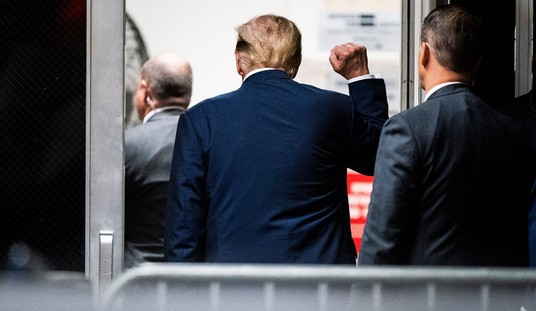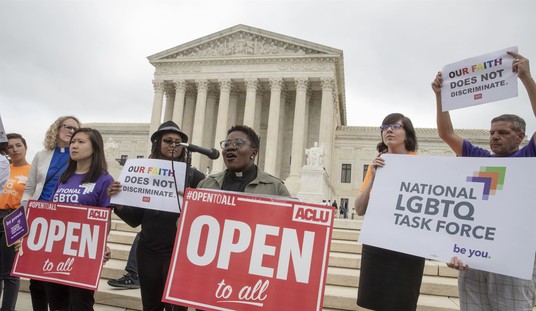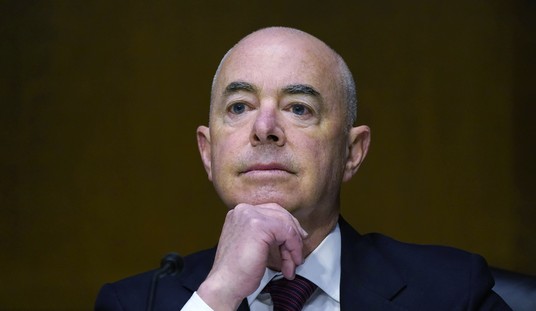From the diaries by Erick. Well done piece!
For those of you that never actually had close contact with equines the term means that if you have something to pull with, you can get something to pull. The horse provides the energy, not the cart, and first you need a source of energy. Erick Erickson takes a brave stand given the clear intent of this web site in his Saturday editorial Maybe We Really Do Need a Third Party
The problem for the GOP is that it is in danger of fracturing, not because it has moved so far right, but because it refuses to actually practice what it preaches.
Erick does not advocate for a third party, but rather lays out the risk to the Republicans if we do not address the issues of great concern to the membership. Erick’s article puts a bright light on the decision to have open primaries which corrupt the outcome of our national elections and leads to the kind of situation we find ourselves in today.
However, while Erick doesn’t advocate for a third party, the risk is real that the Republicans will fracture, as Erick puts it. Looked at honestly both the Democrats and the Republican parties are set to implode as large numbers of Democrat constituencies see that the direction Progressives are leading the country does little for them as well.
So what is the risk. Does talking about a third party make a difference, and is the Tea Party movement a risk to Republicans? A third party doesn’t create energy, it is the result of energy. And that difference is critical. Most people who read this website know how the Republican party came into being as an alternative for the disillusioned after the great “compromises” of the mid 19th century.
The Republican party coalesced around an ideal that was in conflict with the leadership of both existing parties at that time. Slavery was the greet divide in the mid-19th century, and it was the “national comprise” to carry on in the same economic direction that lead to the fracturing of Whigs. The idea created the energy and they came first. The GOP evolved from that.
Erick considers that Conservatives may develop a third party in order to send more reliable representatives to Washington to vote in support of conservative values. This assumes that the energy for a third party comes from the values of the conservative coalition, social conservatives, fiscal conservatives, moral conservatives.
I respectfully disagree.
The great comprises of our times is not in our values as a nation. I will give you that those values have been trounced upon and shredded. This alone is not sufficient to differentiate the parties. As important as each value is to it’s associated supporters, fiscal conservatives put other values before abortion, and moral conservatives have shown they unwilling to compromise on abortion regardless of the outcome on spending. The fact that Barrack Obama is the President of the United States demonstrates that the common ideals that bind these “conservatives” are not strong enough to overcome their personal priorities and work together on a common goal to achieve success against the Progressive onslaught. So forgive me when I define these as secondary considerations. They are not sufficient to form the crucible that the compromises on slavery represented in it’s time.
The Whigs and the Democrats imploded not over what they disagreed about, but over what they agreed upon. Our Republican party and Obama’s Democrat party retain adequate differentiators that can be clearly conveyed to the public seeking to make a choice. Like the Whigs, however, it is where the Republican party is indistinguishable from the Democrats that we find the energy for a third party.
When it comes to volume of spending there is no discernible difference between Republicans and Democrats. I am not talking about how they spend our money, but the simple fact that both believe they have the right to spend our money and hide it behind images of it being for our own good.
Some of us, tea party movement types, think that is not the purpose the founders intended. We believe that the federal government should not be deciding domestic matters, either for conservatives or against. But rather, that the state and local governments should be independent to do so with the support and funding of their local population. The energy of the tea party movement isn’t the way that the government directs our domestic policy but that it has no right to do so.
In this, you will see that there is a risk for conservatives. Many conservatives actually want a powerful federal government that can impose “proper standards” including but not limited to overturning the legalization of abortion. To be successful within a third party conservatives have to ask this question of themselves. Can I stand next to someone that wants to vote to permit everything I abhor, legalized abortion, confiscatory taxation, nanny state policies and government controlled industry in their community for the simple reason that they support my right to vote to impose the direct opposite in my community?
The energy for a third party is in the belief that the “partisanship” Obama likes to cite is the result of the federal government stepping outside the bounds of the authority that the founders intended. It is very easy for all of us to put aside our partisan views when we are talking specifically about foreign policy. When it comes to domestic matters such as my children’s education, where and how I receive health care, or who is the town Sherriff of course it is partisan.
The basis for a third party would not be to send better conservatives to Washington. The basis for a third party would be to eliminate the power and control Washington has over domestic policy and return that power to the states. I am not convinced that either the Democrat or Republican leadership has the ability to adapt sufficiently to avoid the fate of the Whigs. But the Democrat’s belief in the rule of the elite will allow them to weather the changes. Both parties have too much in common and have at stake their mutual investment in the centralized power of the federal government for either to change from within.













Join the conversation as a VIP Member